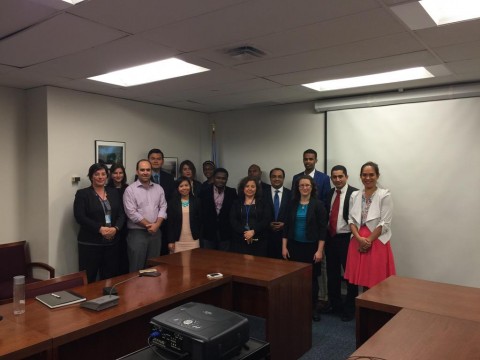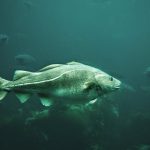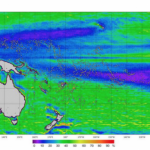How can scientists impact policymakers?
It’s a question that Daniel Dunn considers in his research every day.
Dunn is an research scientist in the Marine Geospatial Ecology Lab at Duke University, a Nereus Program Senior Fellow, and the co-author of a new paper, “Dynamic Ocean Management: Identifying the Critical Ingredients of Dynamic Approaches to Ocean Resource Management,” recently published in BioScience.
The paper outlines the emerging field of dynamic ocean management (DOM), which uses real-time data to guide the spatial distribution of commercial activities.
“I describe dynamic ocean management as any activity whose coordination is governed by conditions on the ground,” Dunn says. “For instance, changes in oceanography, the contents of a fishermen’s haul or market signals.”
DOM aims to increase efficiency in resource use and decrease effects on the ecosystem by aligning how the resource, resource users, management, and markets act in time and space. Currently, DOM approaches are being applied around the world to aid or replace traditional static management. The main goals include: full utilization of target quotas, reducing discards of commercially valuable species, and reducing interactions with species of conservation concern.
And as ocean patterns alter with climate change, DOM might be one potential solution.
“Climate change is going to cause the potential for resources to shift in time and space to be exaggerated,” Dunn says. “Dynamic management is definitely more capable of addressing and integrating climate change effects into management than traditional static measures are.”
But is DOM cost-effective for both fishermen and fisheries?
The paper lists several successful examples―from reducing bycatch in a scallop fishery on the East Coast of the U.S. to limiting the unwanted capture of southern bluefin tuna in Eastern Australia.
“All of these methods are totally feasible to use in other fisheries,” Dunn says. “I think it’s a question of matching the management measure with the resources of management and the capacity of the fishermen.”
The cost to fisherman, Dunn states, has to be relative to the current management measures.
“You’re not doing this in a vacuum. You have to compare what dynamic management offers and the cost of implementing dynamic management with the cost of the alternatives, and some static measures can be very coarse and incredibly costly to fishermen and fishing communities.”
As DOM research continues, there’s plenty of room for growth and development. Applications will need to consider more complex management involving multiple species, as well as social and economic data, stakeholder structures, and local attitudes and beliefs of ocean use.

Outside of his work on dynamic ocean management, Dunn had the opportunity to see how science can affect international policy at the United Nations. From April 6 to 10, he spoke with experts from the Division for Ocean Affairs and the Law of the Sea (DOALOS) at the UN Open-Ended Informal Consultative Process on Oceans and the Law of the Sea meeting.
Each year the meeting brings in panels of experts to discuss timely ocean-related issues to UN delegates. The ultimate goal is to allow a broader audience than normally participates in UN meetings, including stakeholders and researchers, to inform the policy makers. This year the theme emphasized the integration of the three dimensions of sustainable development: environmental, social, and economic.
For Dunn, it was an opportunity to see how DOALOS, as a knowledge-broker, interacted with scientists and how Nereus might inform them in the future.
Sustainability was the major discussion on the table―especially in light of the Millennium Development Goals.
“There’s something called the post-2015 development agenda negotiations, which are going on now and they’re coming up with new goals,” he says. “[The UN] is just referring to them as ‘sustainable development goals.’ And there’s been a lot of effort over the last few years to ensure that one of these goals would be ocean-related.”
While the UN moves forward and beyond the original Millennium Development Goals, meetings like this help to shape the conversation around future ocean sustainability.
As he continues his own research, Dunn sees the value in interdisciplinary communication. Bringing different perspectives together can create real change, from fisheries to policies.
“I think it’s really useful,” he says. “Perhaps even critical if you want to be an applied scientist—to have the opportunity to engage with someone who is essentially a stakeholder in the scientific process, someone who is going to use that information to create policy.”
by Emily Fister








